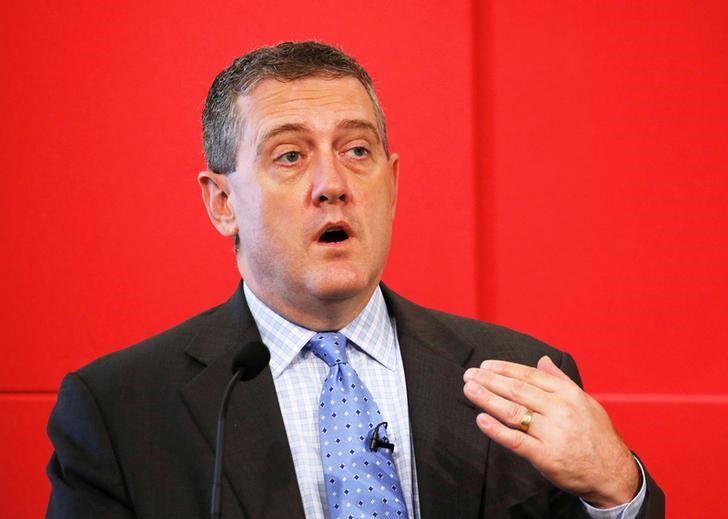AMELIA ISLAND, Fla. (Reuters) - The economy's weak performance at the start of the year should slow Federal Reserve plans for further rate increases, now broadly expected to resume at the central bank's June meeting, St. Louis Federal Reserve bank president James Bullard said on Monday.
"The first-quarter GDP growth was disappointing and it means we are starting the year in an inauspicious way...It was consumption growth that was weaker and that is a concern because consumption has been a strong point," said Bullard, who feels in the current low-growth economic climate the Fed may need at most one more rate increase.
"On inflation the numbers were disappointing. We have been telling a story that we are trending back towards 2 percent and we went the other way," away from the Fed's formal target.
Given the data, he said continuing to increase rates would raise concerns the Fed was being guided more by the calendar, with market expectations aligned strongly behind a June rate increase, than by the economy.
“I worry we get back into calendar-based policy...and not paying attention to what is happening in the data,” said Bullard.
Bullard's view is in the minority among a group of policymakers who feel increasingly confident the Fed can raise rates steadily over the next couple of years.
In remarks at an Atlanta Federal Reserve bank conference here, Bullard elaborated on his view that, to the contrary, low rates may be here to stay.
Continued strong global demand for safe assets along with sluggish growth in the U.S. workforce, he said, will hold down U.S. interest rates for the foreseeable future. In particular, he said that has lowered the "natural" rate of interest that serves as a rough estimate of where the federal funds target rate would come to rest over the long term.
Bullard has argued since last year that in a low-growth, low-productivity, low-inflation "regime," the appropriate federal funds rate is less than one percent - about where it is now following the Fed's most recent rate hike in March.
He said there is no reason to expect any of those dynamics to change soon, and no reason for the Fed to march rates steadily higher.

"The natural rate of interest, and hence the appropriate policy rate, is low and unlikely to change very much," said Bullard. "The policy rate is approximately at an appropriate setting today."